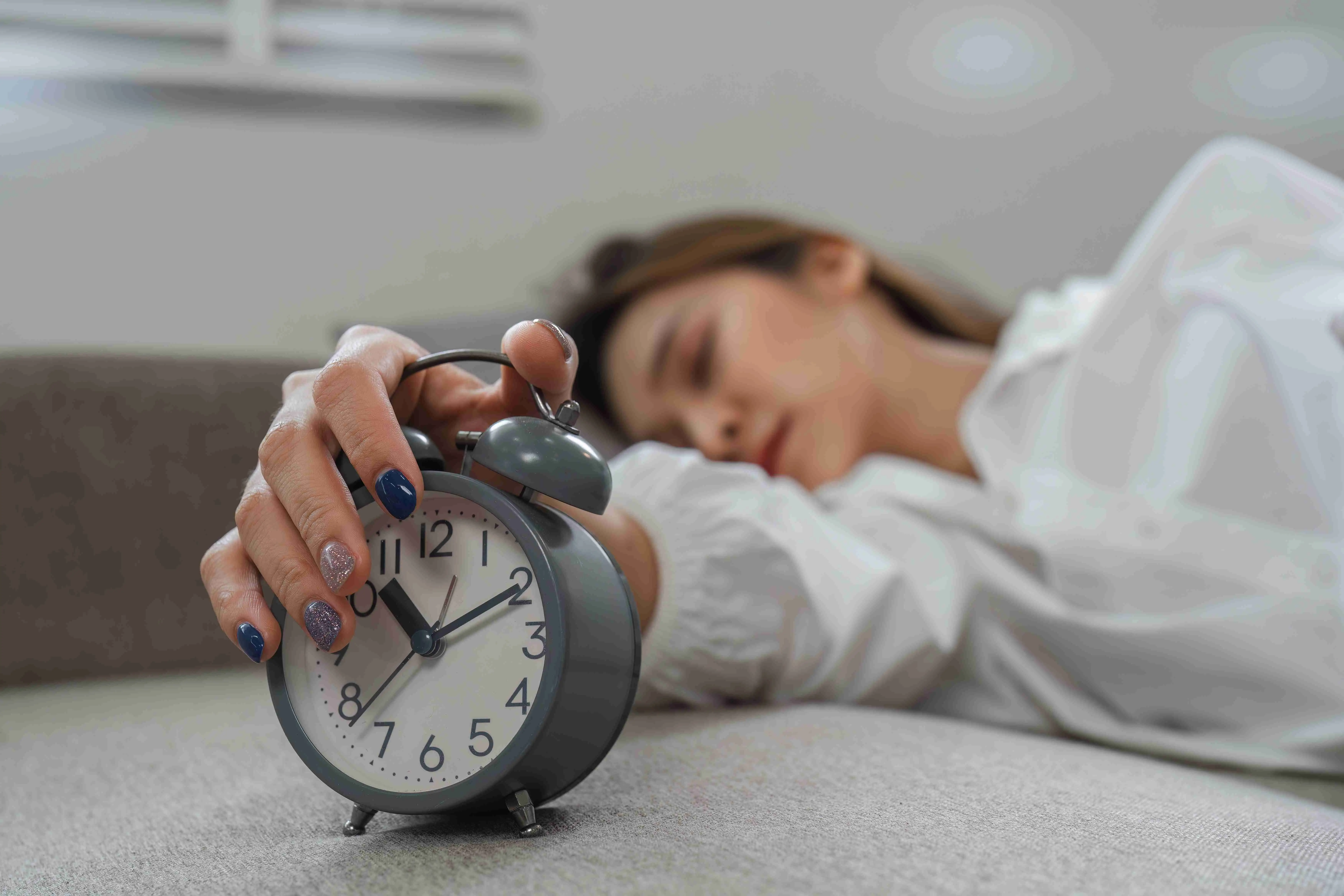The importance of adequate sleep cannot be overstated. Finding the right balance for your individual needs is key to ensuring optimal health, productivity, and overall quality of life.
How much sleep we need can vary depending on factors such as age, lifestyle, and overall health. Adults are generally advised to get 7 to 9 hours of sleep each night, but some people may need more, while others may do just fine with less.
In this article, we will discuss how much sleep we need and the different factors that can affect the duration of restorative sleep for us.
The Importance of Sleep

Sleep is a vital aspect of overall health and well-being. Adequate rest is crucial for the body to repair and rejuvenate itself, allowing us to function optimally both mentally and physically.
Prioritizing sleep hygiene, creating a relaxing bedtime routine, and maintaining a consistent sleep schedule are all key factors in promoting a restful night's sleep.
Cognitive Function and Brain Health
During sleep, the brain consolidates memories, processes information, and regulates emotions, all of which are vital for cognitive abilities such as problem-solving, decision-making, and creativity.
Chronic sleep deprivation can impair cognitive function, leading to difficulties in concentration, memory retention, and problem-solving skills.
Furthermore, insufficient sleep has been linked to an increased risk of neurodegenerative diseases such as Alzheimer's.
Mental and Emotional Well-Being
Adequate rest allows the brain to recharge, consolidate memories, and regulate emotions. Lack of sleep has been linked to increased levels of stress, anxiety, and depression. When individuals consistently fail to get enough sleep, it can have a significant impact on their overall mood and cognitive functions.
Physical Performance and Energy Levels
Sleep plays a vital role in maintaining optimal physical performance and energy levels.
Adequate sleep is crucial for athletes, as it directly impacts their overall performance and recovery.
Without sufficient rest, individuals may experience decreased endurance, coordination, and strength, which can hinder their ability to excel in sports or physical activities.
Immune System Support
A good night's sleep is essential for maintaining a healthy immune system. During sleep, the body works to repair and strengthen the immune system, helping to ward off illnesses and infections.
Heart Health
Lack of sleep can contribute to various cardiovascular issues, including hypertension, heart disease, and stroke. During sleep, the body repairs and rejuvenates itself, promoting proper functioning of the cardiovascular system.
Sleep deprivation can disrupt this process, leading to increased inflammation, elevated blood pressure, and irregular heart rhythms.
Weight Management
Inadequate sleep can disrupt hormonal balance, leading to increased cravings for unhealthy foods and potential weight gain.
Therefore, prioritizing quality sleep is essential for both physical performance and weight management.
Sleep Requirements by Age

Ensuring an adequate amount of sleep is crucial for overall health and well-being, with different age groups requiring varying durations of rest.
Recommended sleep by age serves as a guideline to promote optimal physical and mental functioning.
| Age | Hours of Sleep By Age |
|---|---|
| Infants (4-11 months) | 12-16 hours (including naps) |
| Toddlers (1-2 years) | 11-14 hours (including naps) |
| Preschoolers (3-5 years) | 10-13 hours (including naps) |
| School-age Children (6-13 years) | 9-12 hours |
| Teenagers (14-17 years) | 8-10 hours |
| Adults (26-64 years) | 7 hours or more |
Why Sleep Needs Change with Age
As individuals age, their sleep needs tend to evolve due to various factors. One reason for the change in sleep requirements with age is the natural decline in the production of certain sleep-regulating hormones, such as melatonin.
This decline can lead to changes in sleep patterns, making it harder for older individuals to fall and stay asleep.
Additionally, age-related health conditions, such as arthritis or sleep apnea, can also impact the quality of sleep. Older adults may find themselves needing more naps during the day to compensate for nighttime sleep interruptions.
Can some people function with less sleep?
Some individuals may be able to function effectively on less sleep than the recommended 7-9 hours per night.
This ability to operate on reduced sleep, known as "short sleepers," is rare and believed to be a genetic trait. Short sleepers typically require only 4-6 hours of sleep per night without experiencing negative consequences on their cognitive function or overall health.
However, it is essential to emphasize that most people still need adequate rest for proper physical and mental well-being.
Factors That Influence Sleep Needs
The amount of sleep an individual needs can vary significantly based on several factors. Understanding the factors that influence sleep needs is crucial for maintaining optimal health and well-being.
Stress and Mental Health
Stress and mental health play a crucial role in determining the quantity and quality of sleep a person requires.
High levels of stress or underlying mental health issues can lead to difficulties falling asleep, staying asleep, or experiencing restful sleep, ultimately impacting the total amount of sleep needed.
Chronic stress can disrupt the body's natural sleep-wake cycle, leading to sleep deprivation and further exacerbating mental health conditions.
Health Conditions
Health conditions can also have a substantial impact on an individual's sleep needs.
Certain medical conditions, such as sleep apnea, insomnia, or chronic pain, can significantly disrupt sleep patterns and lead to increased sleep requirements.
Conversely, mental health conditions like anxiety and depression can also affect the quality and quantity of sleep a person needs.
Genetics
Genetics play a significant role in determining an individual's sleep needs and patterns.
Genetic factors can influence various aspects of sleep, including the amount of sleep needed, the timing of sleep, and susceptibility to certain sleep disorders.
Understanding one's genetic predispositions can help tailor strategies to optimize sleep quality and duration based on individual requirements.
Diet
Diet is another important factor that can influence an individual's sleep needs. Consuming a balanced diet rich in nutrients like magnesium, tryptophan, and melatonin can promote better sleep quality.
On the other hand, consuming stimulants like caffeine close to bedtime or eating heavy meals late in the evening can disrupt sleep patterns and lead to increased sleep needs.
Developing healthy eating habits and being mindful of how diet affects sleep can be beneficial in meeting individual sleep requirements.
Environmental Factors
Environmental factors such as noise, light, temperature, and air quality can also influence sleep needs.
An environment that is not conducive to sleep can disrupt one's ability to achieve a restful night's rest, ultimately affecting the amount of sleep needed to feel refreshed and rejuvenated.
Screen Time
The exposure to screens, such as smartphones, tablets, and computers, before bedtime can disrupt the body's natural sleep-wake cycle.
The blue light emitted from screens can suppress the production of melatonin, a hormone that regulates sleep. This can lead to difficulty falling asleep and result in poorer sleep quality.
Sleep Debt and Recovery
Sleep debt refers to the cumulative sleep deprivation a person experiences over time due to not getting enough rest.
This can lead to increased drowsiness, fatigue, and reduced cognitive function. Recovery from sleep debt is crucial, as it allows the body to catch up on lost sleep and restore its natural balance.
Signs You’re Not Getting Enough Sleep
Not getting enough sleep can have significant effects on both your physical and mental well-being.
Understanding these symptoms is crucial to get an indication that we are not getting enough sleep and prioritize more healthy sleeping habits.
Cognitive and Emotional Symptoms
Lack of adequate sleep can have noticeable effects on both cognitive and emotional well-being.
Recognizing the signs of insufficient sleep is crucial for maintaining your cognitive function and emotional stability.
- Difficulty Concentrating: Sleep deprivation can impair your ability to focus, make decisions, and process information efficiently. This can manifest as an increased tendency to make mistakes, forget important details, or struggle with complex tasks.
- Memory Issues: Memory issues are prevalent among individuals who are sleep deprived. Lack of proper rest can disrupt the consolidation of memories, making it harder to retain and recall information effectively.
- Mood Swings: Sleep plays a crucial role in regulating emotions and mood. When you don't get enough sleep, you may find yourself feeling irritable, anxious, or overly sensitive to stressors. These fluctuations in mood can impact your relationships, work performance, and overall well-being.
- Lack of Motivation: When the body and mind do not have sufficient rest, it can lead to decreased energy levels and a general feeling of apathy towards tasks that would typically be engaging or important.
Physical Symptoms
The physical symptoms of insufficient sleep should not be ignored, as they can indicate underlying health issues and affect our overall quality of life.
- Persistent Fatigue: Persistent fatigue is a prevalent physical symptom experienced by individuals who do not get enough sleep. This type of fatigue is different from the occasional tiredness we may feel after a particularly busy day or a strenuous workout. It is a deep-seated exhaustion that does not improve with rest and can persist throughout the day, impacting our productivity and mood.
- Frequent Yawning: Yawning is a natural reflex that helps regulate oxygen and carbon dioxide levels in the body, but excessive yawning can be a sign of sleep deprivation. When we do not get enough restorative sleep, our bodies struggle to maintain optimal levels of alertness and attention during the day, leading to increased yawning as a way to try and stay awake.
- Headaches: Headaches are another common physical symptom that can indicate a lack of sufficient sleep. When we are sleep-deprived, our bodies release stress hormones that can trigger tension headaches or migraines.
- Weakened Immune System: Lack of adequate sleep can compromise the body's ability to fight off infections and illnesses, making you more susceptible to colds, flu, and other health issues.
Sleep-Related Symptoms
Lack of sufficient sleep can manifest itself in various sleep-related symptoms.
If you find yourself consistently feeling excessively worn out during the day, it may be a sign that you need to prioritize improving your sleep habits to ensure you are getting adequate rest each night.
- Difficulty Falling Asleep: Difficulty falling asleep is a classic sign that you may not be getting enough rest. If you find yourself lying in bed for an extended period, unable to drift off into a peaceful slumber, it could be a clear indication that your body and mind are not getting the rest they require.
- Frequent Awakenings: Difficulty falling asleep is a classic sign that you may not be getting enough rest. If you find yourself lying in bed for an extended period, unable to drift off into a peaceful slumber, it could be a clear indication that your body and mind are not getting the rest they require.
- Daytime Drowsiness: When individuals do not get enough rest during the night, they often experience excessive tiredness and a strong urge to nap or doze off during the day. This persistent feeling of drowsiness can significantly impact one's productivity, concentration, and overall quality of life.
How to Determine Your Ideal Sleep Duration

Determining your ideal sleep duration is crucial for maintaining optimal health and well-being. While the recommended amount of sleep for adults is typically between 7 to 9 hours per night, the ideal duration can vary from person to person.
Pay Attention to How You Feel During the Day
One way to determine your ideal sleep duration is to pay attention to how you feel during the day. If you find yourself feeling drowsy, irritable, or unfocused, it may be a sign that you are not getting enough sleep. On the other hand, if you wake up feeling refreshed and alert, you may have found your ideal sleep duration.
Keep a Sleep Diary
By tracking the number of hours you sleep each night and how you feel the next day, you can start to identify patterns and trends. Over time, you may notice that you feel best when you get a certain amount of sleep consistently. This can help you pinpoint your ideal sleep duration more accurately.
Consult a Healthcare Professional
Consulting with a healthcare professional or sleep specialist can also be beneficial in determining your ideal sleep duration.
They can provide guidance based on your individual needs and help you develop a personalized sleep schedule.
Additionally, they may recommend a sleep study to assess any underlying sleep disorders that could be affecting the quality and duration of your sleep.
Sleep Duration vs. Sleep Quality: Which Matters More?
When considering the importance of sleep, both duration and quality play significant roles in overall well-being.
When considering which matters more, it can be argued that both sleep duration and quality are essential factors in determining the impact of sleep on our daily lives.
Understanding Sleep Cycles and Sleep Efficiency
Understanding sleep cycles and sleep efficiency is essential in determining which matters more.
Sleep duration refers to the total time spent sleeping, while sleep quality pertains to the depth and restorative nature of sleep.
Striking a balance between sufficient sleep duration and high-quality sleep is key to maintaining optimal health and performance.
Monitoring sleep cycles and improving sleep efficiency can help individuals achieve a harmonious balance between quantity and quality of sleep.
The Role of Deep Sleep and REM Sleep
While the recommended amount of sleep varies for individuals, the quality of sleep, particularly the stages of deep sleep and REM sleep, may be more significant than just the number of hours slept.
Deep sleep is essential for physical restoration and growth, while REM sleep is crucial for cognitive function and emotional regulation.
Can you train your body to need less sleep?
There are many myths surrounding the idea of training your body to require less sleep.
While some individuals claim to function well on minimal rest, sleep experts emphasize the importance of getting adequate sleep for overall health and well-being.
The notion that one can train their body to need less sleep is often based on anecdotal evidence rather than scientific research.
Tips for Improved Sleep
Adequate sleep is essential for overall well-being; fortunately, there are several tips and strategies that individuals can implement in their daily lives to enhance the overall quality of their sleep.
Stick to a Consistent Sleep Schedule
Establishing a consistent sleep schedule is crucial for improved sleep quality.
Going to bed and waking up at the same time every day helps regulate the body's internal clock, making it easier to fall asleep and wake up naturally.
This routine reinforces the sleep-wake cycle, allowing for better restorative sleep.
Create a Relaxing Bedtime Routine
Incorporating a relaxing bedtime routine can further enhance sleep.
Engaging in calming activities like reading, meditating, or taking a warm bath before bed signals to the body that it's time to wind down.
Optimize Your Sleep Environment
One effective tip for better sleep is to optimize your sleep environment. This involves creating a comfortable and relaxing space that promotes restful sleep.
Ensure your bedroom is dark, cool, and quiet, and invest in a comfortable mattress and pillows.
Additionally, consider using soothing sounds or white noise machines to drown out any disruptive noises.
Limit Screen Time Before Bed
Another important tip is to limit screen time, especially before bedtime.
The blue light emitted from screens can interfere with the production of melatonin, a hormone that regulates sleep.
Try to avoid using electronic devices such as smartphones, tablets, and computers at least an hour before going to bed to allow your brain to unwind and prepare for sleep.
Limit Alcohol and Caffeine Intake
One crucial tip to enhance the quality of sleep is to limit alcohol and caffeine intake, especially in the hours leading up to bedtime.
Both substances can disrupt your sleep patterns and make it harder to fall and stay asleep. Instead, opt for calming herbal teas or warm milk to help relax your mind and body before bedtime.
Manage Stress and Anxiety
One of the key factors in achieving improved sleep is effectively managing stress and anxiety.
These two culprits often disrupt our ability to relax and unwind before bedtime, leading to restless nights.
To combat this, it is essential to establish a calming bedtime routine, such as reading a book or taking a warm bath, to signal to your body that it is time to wind down.
Use Naps Strategically
Strategic napping can also enhance your sleep quality. Short naps of around 20-30 minutes during the day can help boost alertness and performance without interfering with your nighttime sleep.
It's important to create a comfortable sleep environment, maintain a consistent sleep schedule, and practice relaxation techniques to signal your body that it's time to wind down.
FAQs
Is there a connection between diet and sleep quality?
Consuming a balanced diet rich in nutrients like magnesium, tryptophan, and B vitamins can positively impact sleep quality. Foods such as whole grains, leafy greens, nuts, and lean proteins can promote better sleep by regulating hormones and neurotransmitters involved in the sleep-wake cycle.
What is sleep debt?
Sleep debt refers to the cumulative amount of sleep that an individual has lost over time. When a person consistently fails to get enough sleep, they start to accumulate a sleep debt.
What are the complications of sleep deprivation?
Inadequate sleep can lead to impaired cognitive function, memory problems, and difficulty concentrating. Chronic sleep deprivation has been linked to an increased risk of developing serious health conditions such as obesity, diabetes, heart disease, and even certain types of cancer.
Are melatonin supplements safe for children?
It is essential to consult a pediatrician before giving melatonin to a child. Children may react differently to supplements than adults, and the long-term effects of melatonin on a child's developing body and brain are not yet fully understood.
How many hours of sleep do adults need?
The recommended amount of sleep for adults typically ranges between 7 to 9 hours per night. However, the ideal number of hours can vary from person to person based on individual factors such as age, lifestyle, and overall health.
Is 4 hours of sleep enough?
No, 4 hours of sleep is generally not enough for most adults. The National Sleep Foundation recommends that adults aged 18-64 get between 7-9 hours of sleep per night for optimal health and well-being.
Conclusion
It is important to recognize that everyone's sleep needs are unique, and some individuals may function well on slightly more or less sleep.
To determine the right amount of sleep, consider how you feel and perform during the day. Listening to your body's signals and ensuring you get sufficient rest is key to achieving a healthy balance of sleep.
Jessica H.
Jessica is a reviewer, writer, and sleep enthusiast at Sleepiverse. Jessica graduated with her master's degree in Nursing research and education. She is a registered nurse and currently works in the Intensive Care Unit. Since becoming a nurse, Jessica has worked the night shift, which means a disrupted sleep schedule. Knowing she needed to function at her best while caring for patients at night, she spent a lot of time researching how to sleep well with a difficult schedule.


